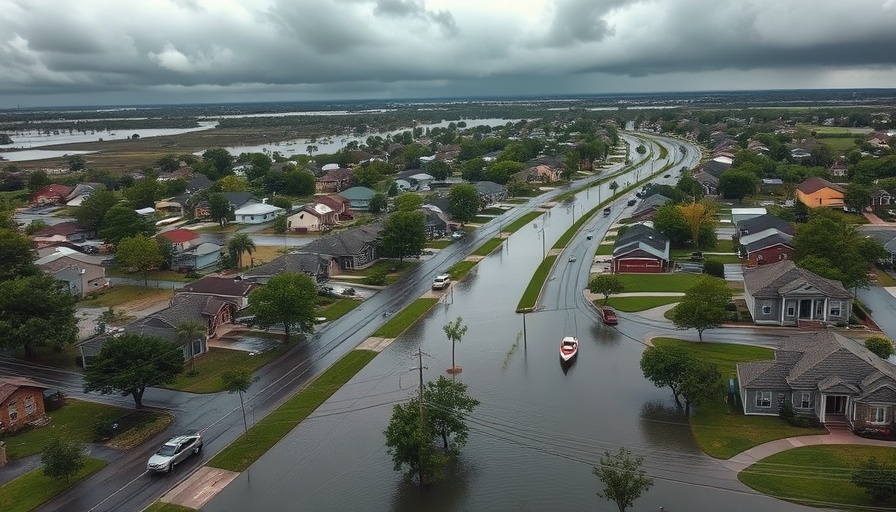
A Flood of Change: How Recent Legislation Affects Texas Residents
In an impactful begin to the second special session of the Texas Senate, lawmakers swiftly approved 14 key bills addressing pressing issues such as flood relief and property tax limits. These legislative moves not only demonstrate the urgency of dealing with natural disasters but also indicate a changing landscape in fiscal policies affecting homeowners across the state.
Understanding the Flood Relief Initiatives
The unprecedented floods that have ravaged communities recently ignited a swift legislative response. The approved flood relief measures aim to allocate funds for crisis management and rebuilding efforts, ensuring that affected Texans have the resources they need to recover.
The New Property Tax Limits: A Double-Edged Sword?
Among the approved legislation, the new property tax caps have stirred debate. While the intention is to ease the financial burden on homeowners, critics argue that tax limits could inadvertently hinder funding for essential local services. As the state balances homeowners' needs with those of its municipalities, this legislation is a pivotal element in the ongoing discussion about responsible governance and community support.
The Broader Implications of Legislative Actions
President Biden’s recent declaration of disaster for flood-affected regions underscores the gravity of situations such as these. The collaboration between state and federal governments in disaster response highlights how crucial it is for legislation to be adaptable in face of worsening weather patterns, partly attributed to climate change. Looking ahead, how Texas approaches future disasters, both from a legislative and infrastructural standpoint, will be vital in determining its resilience.
Future Predictions: What to Expect from Upcoming Legislative Sessions
As lawmakers continue to meet, understanding the potential trajectories of these new laws will be essential for communities across Texas. Engaging with local representatives and being informed about pending measures will allow citizens to voice their needs and priorities more effectively. Community leaders may want to organize town halls to discuss these developments, fostering a dialog that encourages civic participation.
Calls for Community Involvement and Feedback
As the new legislation rolls out, it's essential for Texas residents to remain engaged. Local councils may benefit from public forums, where citizens can express concerns or amendments on these policies. Grassroots movements and organized community responses can significantly impact future legislation and resource allocation. It’s imperative to advocate for a resilient community response to flooding and tax reforms.
Conclusion: Empower Yourself and Your Community
In an age where climate change and fiscal responsibility collide, Texas residents have an opportunity to stay informed and involved. The recent legislative actions showcase a government adapting to crises but also highlight the need for proactive community engagement. Understanding the nuances of flood relief initiatives and property tax caps not only empowers individuals but aids in nurturing an informed society prepared to advocate for sustainable solutions. Join community discussions, reach out to local representatives, and help shape the future of Texas legislation.
 Add Element
Add Element  Add Row
Add Row 



Write A Comment